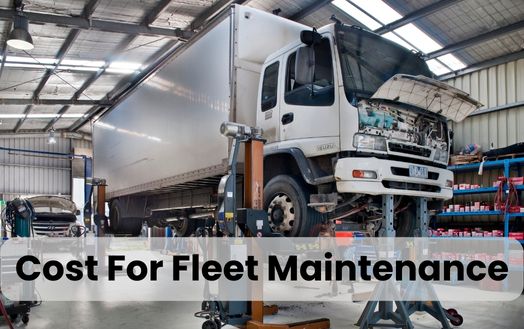
When it comes to fleet maintenance costs, it’s like peeling back the layers of an onion – there’s always more to uncover beneath the surface.
Understanding the intricacies of managing expenses in maintaining a fleet is crucial for any organization. From the initial investment to ongoing operational costs, every piece plays a part in the larger puzzle of financial efficiency.
As we explore the complexities of budgeting, analyzing, and strategizing, we aim to provide insights that could potentially transform the way organizations approach the cost for fleet maintenance expenses.
Vehicle age and maintenance check frequency have a significant impact on maintenance costs. Be proactive in managing fleet maintenance costs. Regular maintenance checks and prompt problem resolution can help businesses reduce maintenance costs. Fleet maintenance costs depend on vehicle age. Maintenance and repair costs are higher for older vehicles because there are more frequent repairs and part replacements.
The quality of maintenance parts can also affect maintenance costs. Higher-quality parts may seem more expensive, but they can extend vehicle life and reduce repair costs. Maintenance staff expertise is also important. Professional technicians can accurately diagnose issues, speed up repairs, reduce downtime, and lower maintenance costs.
Fleet vehicle type also affects maintenance costs. Vehicles require different maintenance and costs. Due to fewer moving parts, electric vehicles may cost less to maintain. By understanding these factors and actively reducing maintenance costs, businesses can optimize fleet operations.
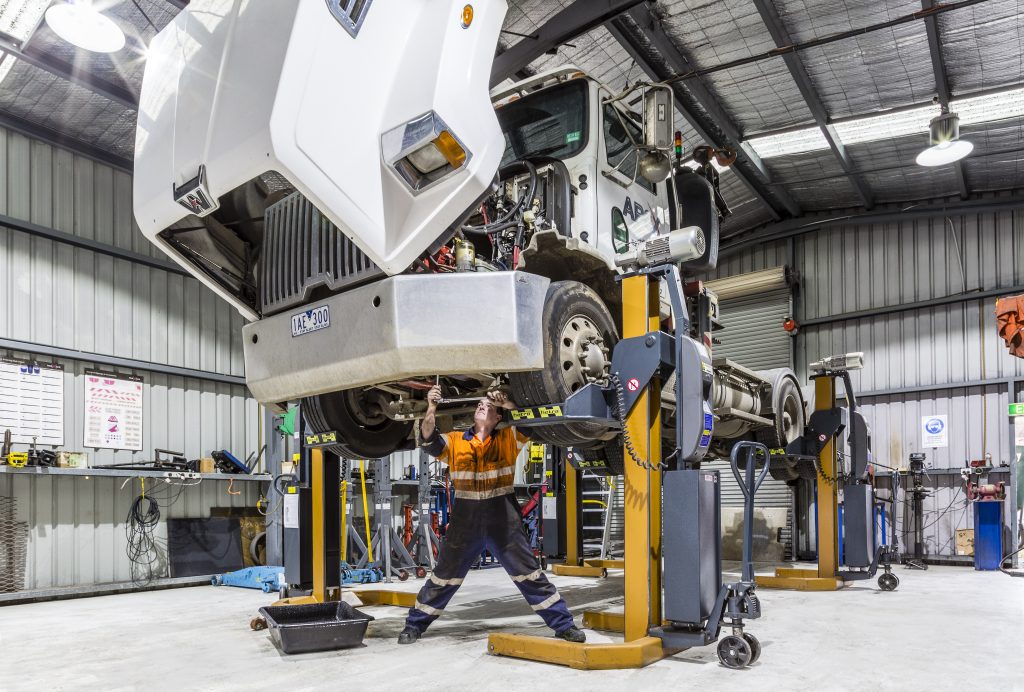
Fleet vehicles need regular maintenance to last and perform well. Without proper maintenance, vehicles can perform poorly and require costly repairs. There are four reasons why regular maintenance is essential for fleet efficiency:
Fleet maintenance requires a detailed budget that accounts for all costs and contingencies. Budgeting for fleet maintenance necessitates strategic cost management and efficient fleet operations. To identify areas where we can optimise and reduce costs without compromising maintenance quality, we need to conduct a thorough cost analysis.
Both fixed and variable vehicle maintenance costs must be considered when budgeting for fleet maintenance. The budget should set aside money for maintenance and insurance. We need contingency funds for unexpected repairs and replacement parts.
Using predictive maintenance to cut fleet maintenance costs is a novel idea. Fleet managers can prevent costly breakdowns by predicting potential issues using data analytics and predictive modeling. This predictive approach reduces downtime and saves money, keeping the fleet running smoothly.
Maintenance technology can streamline processes and cut costs. To optimize maintenance, fleet management software tracks maintenance schedules, vehicle performance, and real-time insights. Fleet managers can use technology to make data-driven decisions that boost efficiency and reduce maintenance costs.
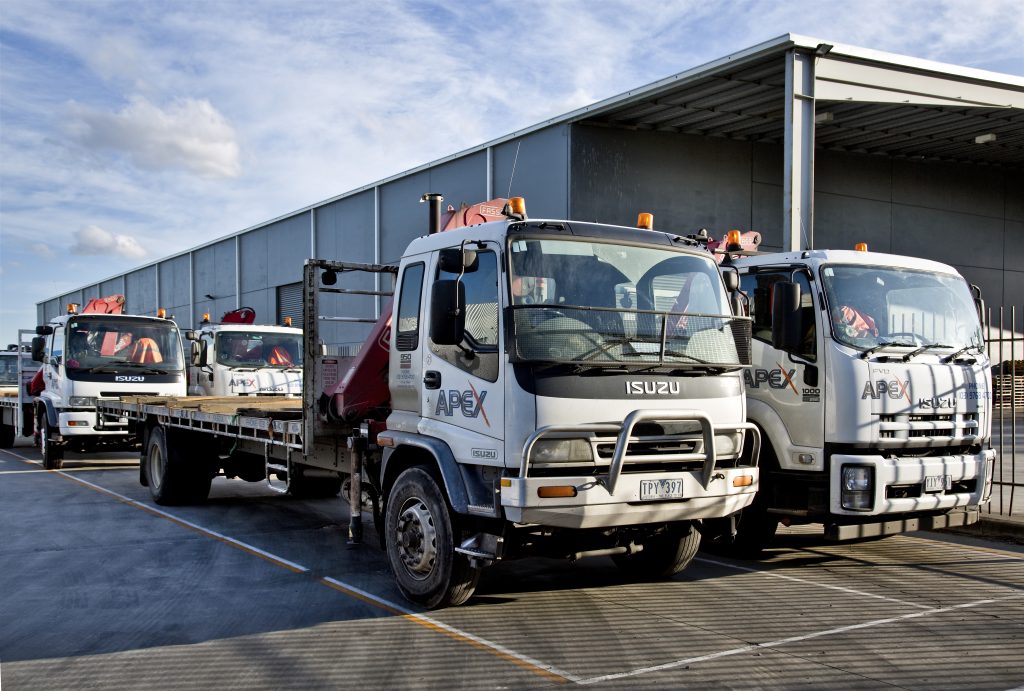
Comprehensive analysis of the total cost of ownership is critical for fleet maintenance budgeting and decision-making. Analysing the total cost of ownership entails taking into account all fleet operating costs beyond vehicle purchase prices. Here are four important factors:
Proactive maintenance can significantly reduce fleet maintenance costs. Using predictive maintenance and data-driven decision-making, companies can optimize vehicle maintenance schedules and reduce unexpected repairs. Learn more about the cost for fleet maintenance in this section.
Real-time fleet vehicle health monitoring using advanced telematics systems allows predictive maintenance to prevent issues from worsening, reducing downtime and costs.
Prioritizing inspections and preventative maintenance can also help to lower fleet maintenance costs. Companies can extend vehicle lifespans and avoid costly breakdowns by routinely checking and replacing parts. Training employees on vehicle maintenance procedures can reduce errors and speed up repairs.
Maintenance management software streamlines workflows, tracks repair histories, and finds cost-saving opportunities. These digital tools help companies analyze maintenance data, spot trends, and optimise maintenance strategies. Innovative maintenance and repair solutions can reduce fleet maintenance costs and boost operational efficiency.
To understand how telematics affects costs, we must first understand how it revolutionizes fleet maintenance and budget management. Telematics’ advanced monitoring and data analytics help organisations cut fleet maintenance costs and boost performance.
Here are four key ways telematics can significantly impact costs in fleet maintenance:
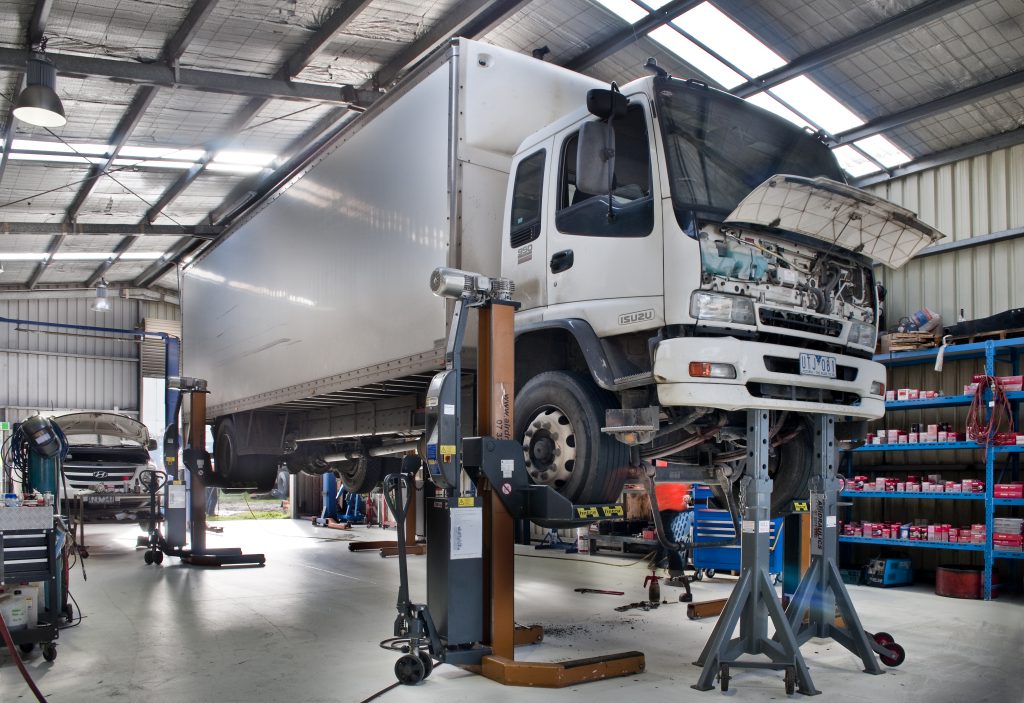
We can improve fleet maintenance efficiency and effectiveness with data-driven strategies. With fleet management software, we prioritize preventive maintenance and streamline maintenance schedules. Proactively addressing issues before they escalate reduces maintenance costs and optimises maintenance programmes.
Fleet management software can optimise maintenance programmes by providing real-time vehicle health and performance data. Our tools allow us to track maintenance histories, set up automated reminders for routine service, and analyze data to identify patterns that can improve maintenance efficiency. These capabilities allow us to customise vehicle maintenance schedules to prevent breakdowns and extend their lifespan.
A data-centric approach to maintenance helps us forecast costs, allocate resources, and reduce downtime. By utilizing preventive maintenance strategies and advanced software, we can transition from reactive to proactive maintenance. This transition improves operational reliability and saves money over time. There are a lot of pros and cons of outsourcing fleet maintenance to a mechanic.
Let’s look at our fleet’s operating costs to see if we can save money. Businesses must manage fleet operating costs to stay ahead in today’s fast-paced world. There are four innovative methods to reduce fleet expenses and enhance the cost per mile.
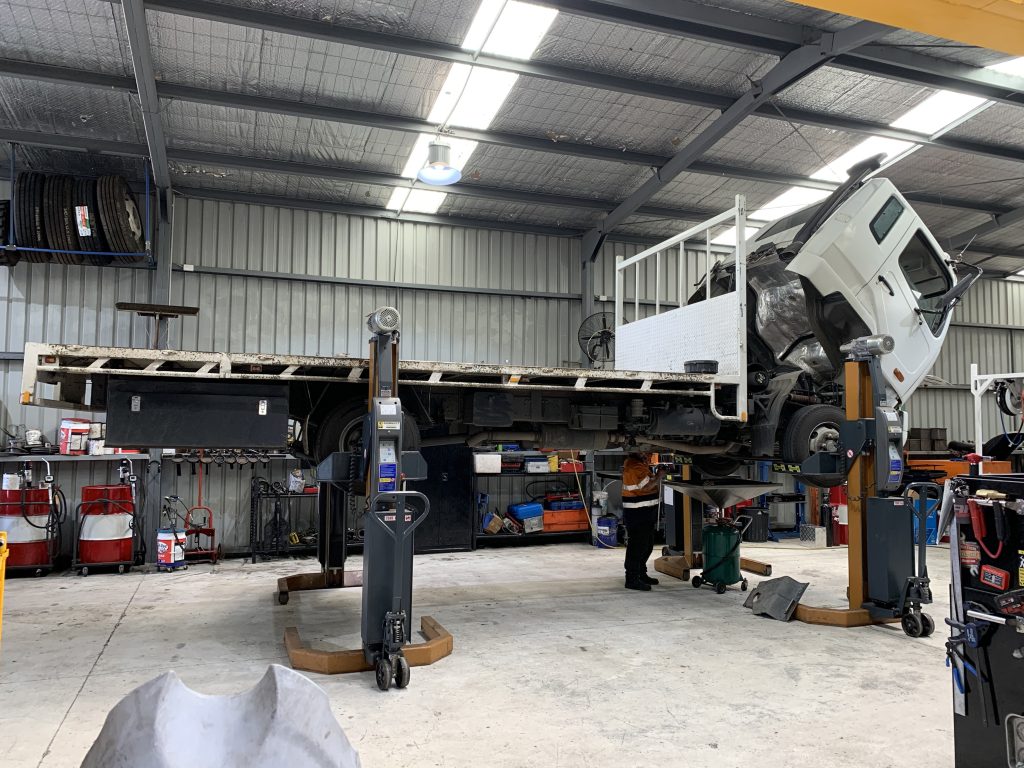
Proactive preventive maintenance for our fleet vehicles can save money and boost efficiency. Preventive maintenance reduces long-term maintenance costs. Oil changes, tyre rotations, and inspections detect issues before they become major ones. This preventative approach minimizes unexpected breakdowns and extends the lifespan of fleet vehicles.
Preventive maintenance greatly benefits fleet data analysis. Data on vehicle performance, usage patterns, and maintenance history can help us optimize maintenance schedules and procedures. By performing maintenance when needed, this data-driven approach reduces repairs and downtime.
Maintaining fleet vehicles at their best requires preventive maintenance. By fixing minor issues and checking regularly, we can avoid major breakdowns and expensive repairs. This proactive approach improves fleet reliability and safety while saving money.
Maintenance optimisation can significantly lower fleet vehicle costs per mile. Innovative strategies can reduce fleet costs and boost efficiency. There are four strategies that can effectively reduce maintenance costs and increase the cost per mile.

We must minimise vehicle downtime to maintain productivity and reduce maintenance costs for our fleet. Proactive fleet vehicle maintenance is one of the best ways to reduce vehicle downtime and keep our fleet running smoothly. We can detect and fix issues before they become major problems that cause downtime by performing regular preventive maintenance checks on all vehicles.
Regular preventive maintenance and a structured maintenance schedule are essential. This schedule should include routine inspections, oil changes, tyre rotations, and other maintenance tasks to keep our fleet vehicles in top shape. Staying ahead of maintenance needs and addressing issues quickly reduces unexpected breakdowns and maintenance costs.
Technology can also reduce vehicle downtime. Fleet management software that provides real-time vehicle health and maintenance insights helps us address issues and schedule maintenance efficiently. In the long run, data-driven maintenance decisions improve vehicle uptime and productivity while lowering maintenance costs. We reduce vehicle downtime and improve fleet performance by prioritizing preventive maintenance, following a structured maintenance schedule, and utilizing technology.
Insurance costs are crucial to fleet financial management and risk mitigation. As a fleet manager, understanding insurance cost factors can significantly affect fleet operations.
Here are four key insurance cost considerations to keep in mind:
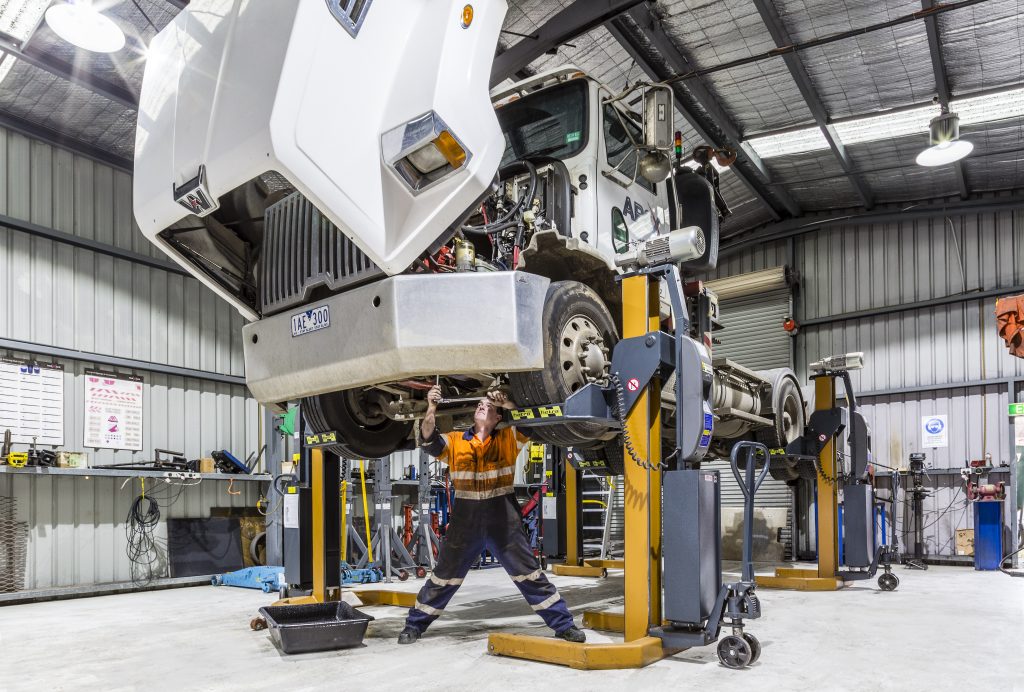
Our fleet management prioritises life cycle efficiency. Understanding the vehicle life cycle is essential for fleet optimisation and cost reduction. We can maximise efficiency and minimise costs throughout the fleet management solution by strategically planning fleet vehicle acquisition, operation, maintenance, and disposal.
To optimise fleet performance, we use fleet data to make informed decisions throughout the vehicle life cycle. We can improve and implement cost-effective solutions by monitoring fuel consumption, maintenance costs, and depreciation. With advanced technology and data analytics, we reduce fleet management costs by streamlining operations and improving productivity.
A comprehensive fleet life cycle management strategy reduces costs and ensures fleet longevity and reliability. We can extend asset life and maintain a modern, efficient fleet by proactively addressing maintenance needs, monitoring vehicle usage, and planning replacements.
To manage fleet maintenance costs, we must understand variables. We have variable costs based on fleet operations. These costs can reveal ways to cut expenses and boost efficiency.
Here are four key aspects to consider when analyzing variable costs in our fleet management:
We’ll implement practical and cost-effective solutions to improve fleet maintenance efficiency and lower costs. To reduce fleet management costs, start with a thorough cost analysis. We can identify inefficiencies and develop targeted solutions by analysing maintenance tasks, fuel consumption, and other variables.
Optimizing fuel consumption is the key to significant savings. Fuel-efficient driving and regular vehicle maintenance can save money over time. To further reduce fuel costs, consider using alternative fuels or hybrid vehicles.
Proactive maintenance can prevent costly breakdowns and repairs. A manufacturer-recommended preventive maintenance schedule and regular inspections can extend vehicle life and reduce unexpected costs.
In conclusion, managing cost for fleet maintenance is crucial for maximizing efficiency and profitability. By understanding the factors that impact maintenance expenses and implementing cost-effective solutions, businesses can ensure their fleets are well-maintained and operating smoothly.
Regular maintenance, budgeting, and strategic planning are key to reducing overall costs and extending the life cycle of fleet vehicles.
With proper management and analysis, companies can optimize their fleet maintenance processes and minimize unnecessary expenses.
For cost efficiency, cutting-edge technology and data analytics help us track and monitor maintenance expenses.
Real-time tracking software and predictive maintenance algorithms help us spot issues before they become costly. This proactive approach streamlines maintenance schedules, reduces downtime, and saves money.
Fleet managers should consider efficiency when considering electric or hybrid vehicles. Regenerative braking systems, off-peak charging schedules, and predictive maintenance with telematics can reduce costs.
Driver behavior has a significant impact on maintenance costs. Driving responsibly and following maintenance schedules can help us reduce vehicle wear. Avoiding sudden accelerations and decelerations prolongs the lifespan of fleet vehicles.
Driver training and monitoring systems have the potential to improve driver behavior, lower maintenance costs, and increase efficiency.
Road and weather conditions can significantly affect fleet maintenance costs. Vehicles wear out faster in extreme weather, requiring more repairs.
Tyre replacement and suspension issues can increase due to poor road quality.
New fleet maintenance technologies and trends promise long-term cost savings. These innovations include predictive maintenance, data analytics for proactive repairs, and IoT sensors for real-time monitoring.
Adopting these innovations can improve operations, reduce downtime, and save money on fleet maintenance.